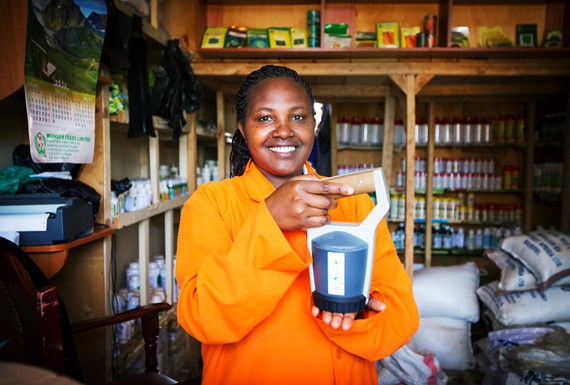
Farmers must regularly test their soils to check for presence or absence of essential nutrients for appropriate action of realising high productivity.
The testing, which is done by soil experts, would also guide a farmers on what to plant at a certain time.
This is possible because the procedure identifies the available nutrients, which forming the basis of advice on the best crops that would best utilize the resources.
Katharine MacMahon of SoilCares Limited says soil erosion, application of the wrong fertilisers among other practices cause nutritional degradation.
Only a critical analysis of the chemical components can prescribe the required remedy to restore productivity.
“Soil testing is a vital, yet often a forgotten part of farming. It is a simple and easy way of knowing what kind of health benefits or deficiencies your soil has for action. Knowing this can dramatically improve farmer’s yields,” She said.
Various crops utilize various nutrients. This results in depletion of some macro and micro nutrients.
Testing will inform the farmer in making a decision of which type of crop to grow instead of ‘blind planting’.
For instance repeated growing of crops utilising chlorine in its nutrient form would cause yellowing of leaves- chlorosis- in subsequent seasons.
Similarly, plants require elements such as potassium and sodium ions which are key in transportation of food.
Phosphorus, manganese or iron deficient soils will have a crop that does not depend much on these minerals to do well.
A farmer would only know which fertilizers and the quantity required to boost the element through chemical laboratory analysis.
READ ALSO: SoilCare takes soil testings closer to farmers in counties.
SoilCare Africa is one of the international companies offering the service locally.
Testing interval
MacMahon says it is recommended that the process is done after every two to three years, or whenever a farmer wants to grow something new. It is also worth taking the samples for testing whenever crops look ‘weak or sickly’.
“Using SoilCares technology, a soil test takes 2 hours. This is compared to other soil testing technologies which take up to 2 weeks,” she said.
A farmer can use random, zigzag or other approved methods to pick soil samples before taking them to the laboratories.
The company has laboratories in Meru, Uasin Gishu, Bungoma and Nairobi counties. There are three laboratories in Bungoma, which were purchased by the county government.
















Comments powered by CComment